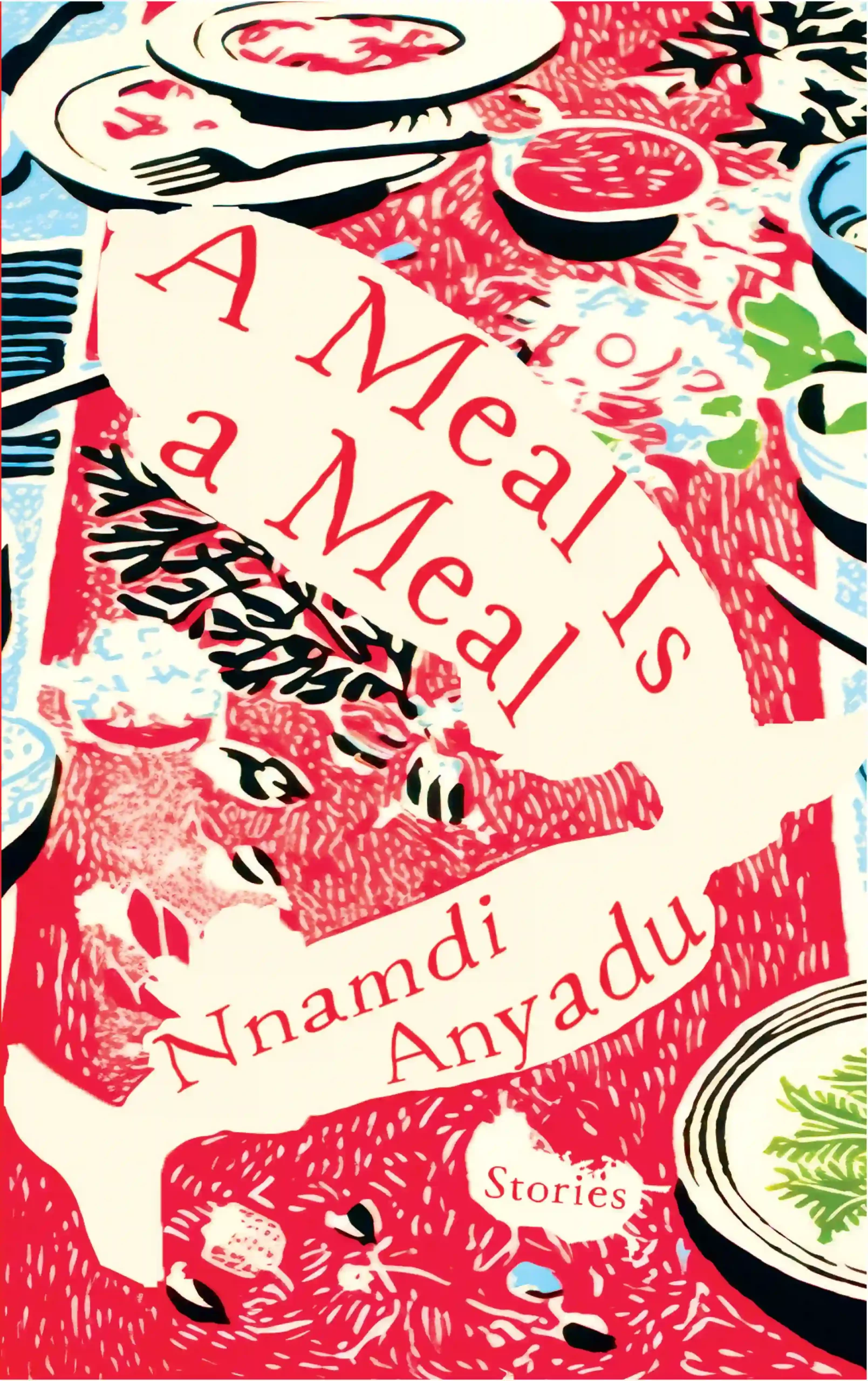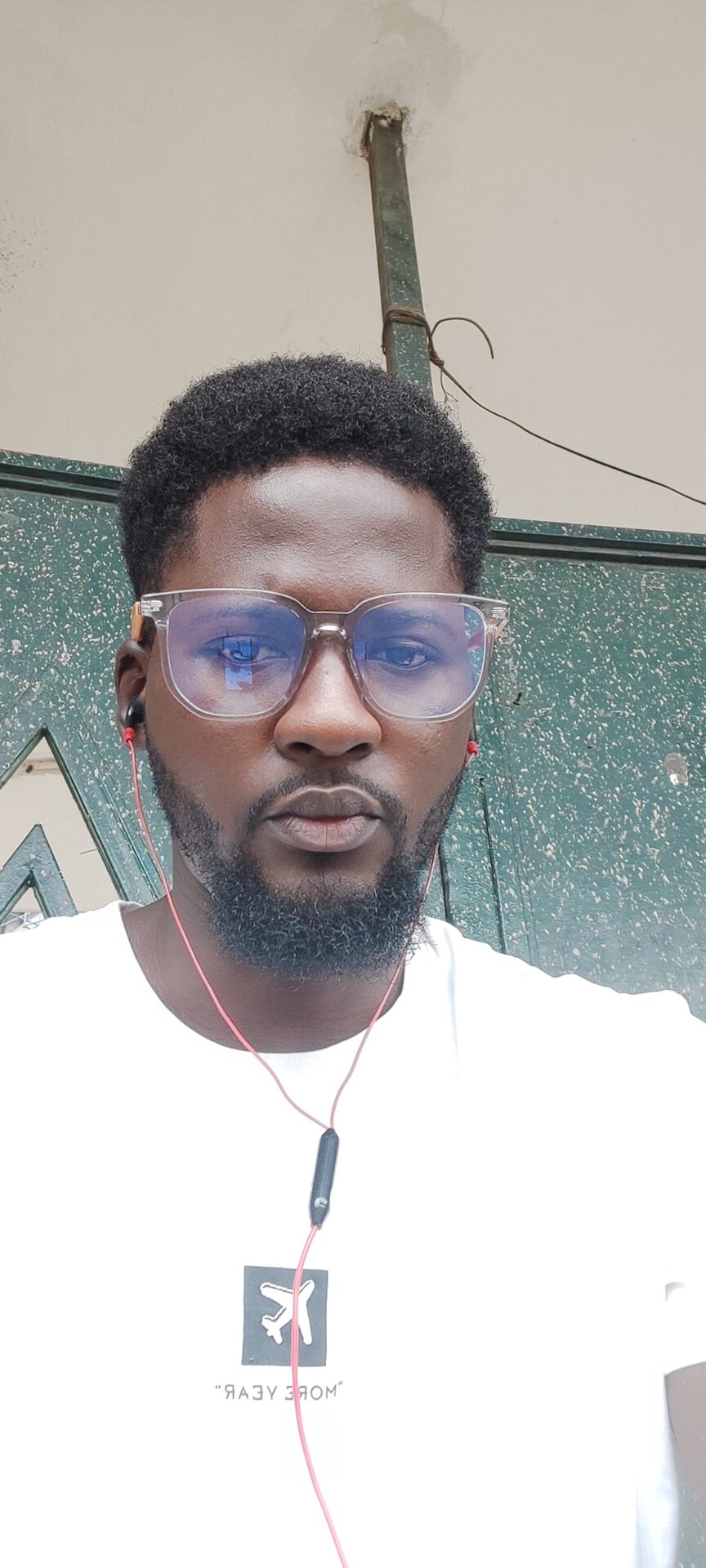
Top 30 Cartoon Characters That Were Villains
Our list rounds up the top 30 cartoon characters that were villains, each one more wonderfully wicked than the last.
African Literature, Excerpt
A Meal Is a Meal is a journey into the surprising and the bizarre, as well as the tantalising and the delicious.

You noticed the girl the day she stood up during the book club’s meeting to make an argument. She had risen quickly, and you had watched her, in awe, from the lounge’s bar, tear down the other book club member with an opposing view.
In that moment of her fiery insistence, as she made her points, it had become clear that she was the one for you. You fell in love with her all at once, gbaa! Moving forward, you began to pay close attention to the book club meetings, because of her.
The book club patronised the lounge twice a month. On every second and last Saturday. The guys drank beer and spirits. The ladies, mostly cocktails. The club president always insisted on having just a bottle of room temperature water. Everyone ate nkwobi, pepper-soup, or asun. Occasionally, someone rolled a joint and passed it around. No one ever smoked a cigarette.
The book club’s meetings lasted a maximum of two hours. During this period, its members discussed and dissected poems, novels, stories, and essays. Arguments rose often over the themes and topics in focus, and died almost as quickly as they had come to life. Sometimes, a book club member was overzealous and threw a tirade. Other times, someone cut them down with a rude joke. Or with superior information, procured from a Google search. This was precisely the case on the evening you had noticed the girl.
You thought the book club was impressive. It seemed like something you’d have loved to be a part of, if your life had towed a different path. You know, if you had had a university education and ended up working in an office where staffers sold insurance or traded in real estate. This literary coterie appeared to you so upwardly mobile, so working class. And you heard it in the personal stories they shared amongst themselves. In their accented speeches, as they engaged in conversations you considered spattered with privilege.
You heard it when they debated Western liberalism, and Gun Laws in America. You heard it when they dragged movie actors and music artistes for abstaining from political participation on the continent. You heard it when they advocated the place of Pidgin in contemporary Afrocentric literature.
Personally, you thought their passions exaggerated, and their politics misplaced. But you did not concern yourself so much with their interests. You concerned yourself, instead, with the girl. She was the singular source of your inspiration. The sole reason you watched the group. Everything else was secondary; tertiary, even.
You admired the girl’s unique style and sense of fashion. Gothic expressions fused with trado-funk je ne sais quoi. This was what you thought of it, even though you did not have the precise words to express this thought.
You liked the patterns in which the girl wore her locks. You liked that all her fingers were ringed. You liked the visible nsibidi tattoo on her forearm, and how she seemed to flaunt it by wearing mostly short-sleeved shirts and dresses.
You see, at first, it did not matter to you that she did not notice you. How could anyone at the book club notice a common waiter like you? Let alone a goddess such as she. You’d heard someone call her a Tech Sis once. And you understood. The men who had her attention were likely Founders, CEOs and big executives who funded start-ups. The type who visited the lounge at late hours, in fancy kaftans and suede shoes. The type who smelt of expensive perfumes and ordered bottles of Glenfiddich, aged twelve years and older. The type who never as much as raised their heads from their iPhones when they spoke to a waiter.
Surely, these were the men that lined her DMs, asking, no, pleading, to be let in. How could it not be them? How could she not attract the finest crop of the male specimen? The ebony of her skin gleamed, even in weak light. Her cheekbones were high and defined. Her neck, slender and svelte. Her hips wider than her shoulders. Her butt, a glory. When she laughed, it was a distinct ring, even amidst the group’s loud cackles. And when she spoke, her singsong voice was the purest pleasure to the ears, like music from a celestial choir.
At night, you dreamt of the girl. She walked right into the kaleidoscope of your dreams. She held your hands and looked into your eyes. She wrapped her arms around you and told you her truths. She called you her one, true love. She confessed that there was no one else for her. That there was no one else like you. That the universe had put you together just for her. And the grand forces of nature had moulded her molecules into place just for you.
In your dreams, she promised you her life. She promised to spend an eternity with you. You laughed because you did not believe her. But she held up your face and reiterated her oath of fealty. So, when you woke up by mornings, you knew the truth. You knew that this was some special telepathy. Your subconscious was linked with hers. Even though she did not yet know it in the physical. The burden of proof was on you. The weight of your future with her sat squarely on your shoulders. The love you both were to share was in your hands.
A Meal Is a Meal is a gothic collection of food-themed stories that comment on the human condition. In the titular story, a young woman lures and kills a love interest in order to host her cannibalistic family to a meal. In “Potluck Jollof”, a caterer is offended by her sisterhood’s depreciation of her culinary craft. She takes her revenge on them, sabotaging their potluck by serving jollof rice concocted in less than hygienic means.
Highlighting the varied myths, beliefs, superstitions, and notions that surround the Nigerian culinary culture, A Meal Is a Meal is a journey into the surprising and the bizarre, as well as the tantalising and the delicious.
A Meal Is a Meal is a meal indeed. It’s a delicious serving of both grounded and transcendental stories that will leave you hungry for more.
— Erhu Kome, author, The Smoke That Thunders.
Nnamdi is a working writer. His short stories explore cultural thoughts and favour character anonymity. They have been longlisted for the Afritondo Prize 2020 (The Mask and the Woman) and shortlisted for the Isele Prize 2023 (Potluck Jollof).
He manages Book Boss NG, a ghostwriting and publishing services outfit in Asaba, Nigeria. He maintains a small garden at his home, and can be found there on most mornings ideating, drinking tea, and feeding birds.
ISBN: 978-978-61117-0-4
Order link: https://www.narrativelandscape.com/product/a-meal-is-a-meal/
Page count: 138 pages

The Tyrant Overlord. Fantasy buff and avid football fan.

Our list rounds up the top 30 cartoon characters that were villains, each one more wonderfully wicked than the last.

DC is great at making comics and animated movies, while the MCU has the upper hand in its cinematic aspects

Discover the best apps to read books for free in 2025. Access thousands of free e-books and audiobooks on your phone or tablet. ...

There are some outright funny cartoon characters who exist solely to crack you up, loud, hard, and with zero apology.

Things Fall Apart is for the colonizers as well as the colonized, helping to understand the role of colonialism in the realization...

While many of the Nollywood movies on our list are quite old, it’s a testament to the capabilities of the industry’s p...

While this isn’t an exhaustive list, it comprises some of the most popular mythical creatures from around the world.